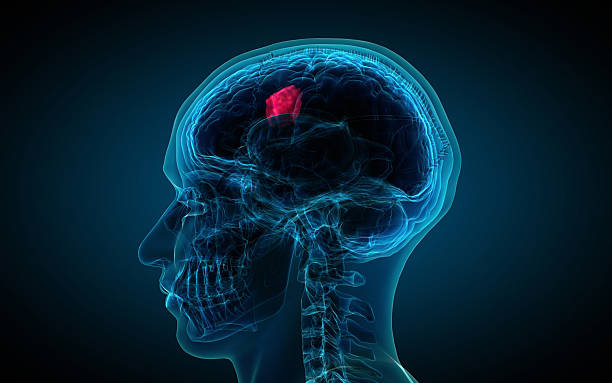WHAT IS BRAIN SURGERY?
Brain Surgery is a critical and complex process. The brain surgery highly depends on its condition which needs to be treated. For instance, a brain aneurysm can be repaired using a catheter that’s introduced into an artery in the groin. If the aneurysm has ruptured, an open surgical treatment which is called as craniotomy may be used.
A craniotomy is the careful expulsion of part of the bone from the skull to uncover the cerebrum. Specific apparatuses are utilized to eliminate the part of bone called the bone fold. The bone fold is incidentally eliminated, at that point supplanted after the brain surgery.
Most craniotomies for brain tumor treatment are completed utilizing a methodology called “picture direction.” Image guided craniotomies are an uncommon sort of stereotactic, or 3-dimensional neurosurgery.
Extra measures are utilized during the brain surgery procedure to assist the specialist with guaranteeing typical cerebrum tissue isn’t being damaged. There are various risks involved such as bleeding, brain swelling, contamination, brain damage or death. Other surgical complications might also consist of seizures, muscle weakness, and issues with memory and thinking.

WHAT ARE SOME TYPES OF BRAIN SURGERY?
- Craniotomy
- Biopsy
- Deep brain stimulation (DBS).
- Neuroendoscopy
- Posterior fossa decompression
- Thrombectomy and cerebral aneurysm repair.
You May also require Brain Surgery When You Have any of the Following Conditions:
- Abnormal Blood Vessels
- An Aneurysm
- Bleeding
- Blood Clots
- Damage To The Protecting Tissue Called The “Dura”
- Epilepsy
- Abscesses
- Nerve Damage Or Nerve Irritation
- Parkinson’s Disease
- Strain After Head Injury
- Skull Fracture
- A Stroke
- Brain Tumors
- Fluid Constructing Up Within The brain
BRAIN SURGERY MAY BE PERFORMED FOR ANY OF THE FOLLOWING REASONS:
- Prevent bleeding within the brain because of an aneurysm
- Operate on a tumor to get rid of it
- Free a nerve inside the brain vicinity this is being pinched
- Drain an abscess or blood from an harm and dispose of pressure at the brain

MINIMALLY INVASIVE BRAIN SURGERY
This minimally invasive surgical operation method makes use of specialized endoscopes with high decision video cameras to carry out surgery of the brain.
Smaller incisions and bony openings often bring about much less pain and shorter sanatorium stays. Minimally invasive surgical procedure refers to any surgical operation that is completed through tiny incisions in preference to a huge entry point. Because a doctor will make smaller incisions, which may have a quicker restoration time and less pain than traditional open surgical operation.
COMPLICATIONS AND RISKS THAT MAY ARISE
- Bleeding
- Allergic reactions
- Blood clots
- Brain swelling
- Coma
- Infection
- Amnesia
- Impairment of bodily functions
- Seizures
Neurological specialists are the one who are highly experienced in diagnosing and treating the full scope of neurological conditions. Treatment alternatives for neurosurgical conditions fluctuate, contingent upon the condition and the most ideal approach to get to the zone that needs treatment.
Doctors involve minimally invasive outpatient medical procedure for spine and cerebrum medical procedure. They focus on joining progressed imaging and MI strategies with modern science to convey the highest caliber of neurosurgical care with the best results. So that excellent, and customized care can be given.
In a brain surgery, a cut has to be made to the scalp bone that exposes the brain tissue. That is why it is also referred to as open brain surgery. It is called the bone flap which is created and the issue to be addressed through the brain surgery which includes an aneurysm, or fluid draining, is performed.
TREATMENT METHODS FOR BRAIN SURGERY SUGGESTS VARIOUS TESTS, INCLUDING:
- A neurological test – A neurological test may incorporate, in addition to other things, checking your vision, hearing, balance, coordination, strength and reflexes.
- Imaging tests – Attractive reverberation imaging is ordinarily used to help analyze brain tumors. At times a dye might be infused through a vein in your arm during your MRI tests.
- Various particular MRI filter segments — other imaging tests are suggested, including mechanized tomography (CT). Positron emission tomography (PET) might be utilized for cerebrum imaging.

BRAIN TUMOR TREATMENT
Brain tumors may be cured with Brain Tumor Treatment if they’re completely eliminated via surgery. Grade II — The tumor cells develop and unfold extra slowly than grade III and IV tumor cells.
They may also spread close by tissue and can recur (come again). Some tumors might also emerge as a higher-grade tumor. Brain tumors can be cancerous (malignant) or noncancerous (benign). When benign or malignant tumors grow, they can cause the stress inside your cranium to increase.
This can cause brain damage, and it can be lifestyles-threatening. Survival for patients with benign tumors is usually a great deal better but, in preferred, survival rates for all types of brain cancers, benign and malignant, are: About 70% in youngsters. For adults, survival is associated with age.
If there is visible Brain tumor shrinking after surgical operation, radiation therapy and chemotherapy may be used. For higher-grade tumors, Brain Tumor treatment usually begins with surgical treatment, accompanied via radiation therapy and chemotherapy.
A Brain Tumor Treatment plan could be made on the basis of patients health.

BRAIN SURGERY AND ITS RECOVERY
You will start feeling tired for numerous weeks after surgery. You may have headaches or issues while concentrating. It can take 4 to 8 weeks to completely recover from a surgical treatment. Your cuts (incisions) can be sore for approximately 05 days after surgical treatment.
Most people who have had a brain surgery would require long rehabilitation. They might also need to relearn basic competencies. The aim is to improve their abilities to carry out their daily tasks easily.
A Brain surgical operation and its treatments can cause changes in a personality and capacity for thinking. Patients may also experience challenges with their communication, awareness, reminiscence and emotional abilities. Most brain tumor patients showcase symptoms which might be consistent, after brain surgery.
Some people may get full recovery in a few weeks or months, others may have to adjust for more time to get back to their daily routines.
If you or anyone you know is suffering from Brain Tumors or Brain Problems, our expert providers at Specialty Care Clinics will take care of your health and help you recover.
Call on 469-545-9983 or fill in the below form to book an appointment with Dr. Yaqub.
